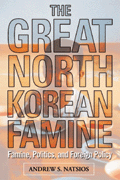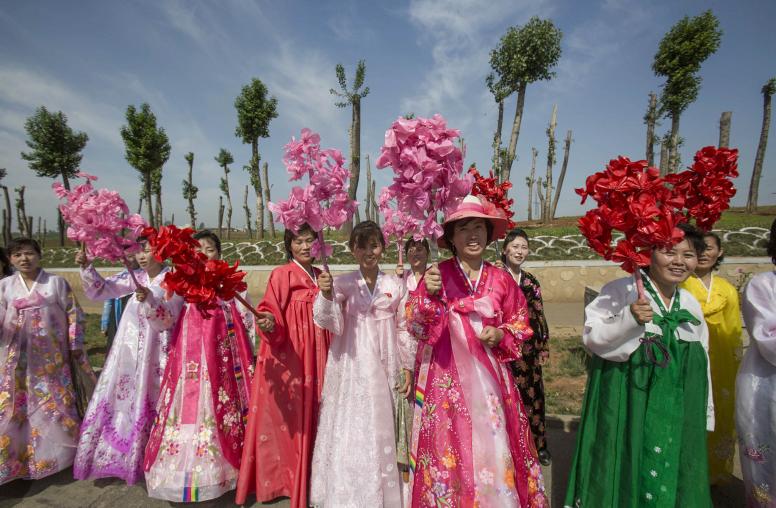The Great North Korean Famine: Famine, Politics, and Foreign Policy
Image on left: The Great North Korean Famine: Famine, Politics, and Foreign Policy
 Andrew S. Natsios, administrator of the U.S. Agency for International Development, spoke on April 30, 2002 at the Woodrow Wilson International Center for Scholars about the causes and consequences of the mid-1990s famine in North Korea--the subject of his new book, The Great North Korean Famine, published by the U.S. Institute of Peace Press.
Andrew S. Natsios, administrator of the U.S. Agency for International Development, spoke on April 30, 2002 at the Woodrow Wilson International Center for Scholars about the causes and consequences of the mid-1990s famine in North Korea--the subject of his new book, The Great North Korean Famine, published by the U.S. Institute of Peace Press.
The event was cosponsored by the Wilson Center's Asia Program, Conflict Prevention Project, and Environmental Change and Security Project and the United States Institute of Peace. ( A summary of the presentation prepared by the Wilson Center is also available online.)
Speakers
- Lee H. Hamilton
Director, Woodrow Wilson International Center for Scholars - Richard H. Solomon
President, U.S. Institute of Peace - Andrew Natsios
Author, The Great North Korean Famine - Robert Hathwaway, Moderator
Director, Asia Program, Woodrow Wilson International Center for Scholars



